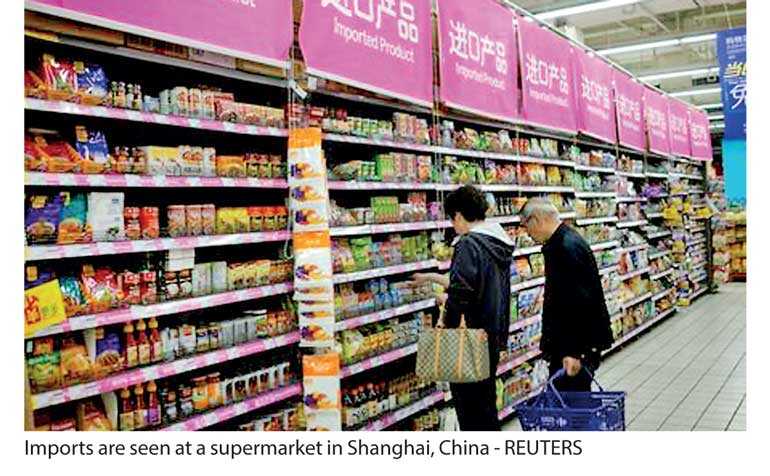Thursday Feb 19, 2026
Thursday Feb 19, 2026
Friday, 25 May 2018 00:00 - - {{hitsCtrl.values.hits}}
 Beijing (Reuters): China plans to cut import tariffs on some consumer products ranging from food and cosmetics as early as 1 July, Bloomberg reported on Thursday, citing unidentified sources.
Beijing (Reuters): China plans to cut import tariffs on some consumer products ranging from food and cosmetics as early as 1 July, Bloomberg reported on Thursday, citing unidentified sources.
The tariff reductions will apply to more product lines than similar cuts on around 200 items announced last year, Bloomberg said, citing the sources.
The move would be in step with Beijing’s pledges to its trade partners - including the United States - that China will take steps to increase imports, and a boon to global brands looking to deepen their presence in China, particularly in the country’s hinterland cities.
The precise composition of the cuts has not been finalised yet, and is still subject to approval by the State Council, or the cabinet, according to Bloomberg.
The State Council and the finance ministry did not immediately respond to faxed requests for comment.
Analysts say the planned tariff cut is unlikely to significantly boost domestic consumption, while its economic impact is most likely limited and hard to quantify.
“Against the backdrop of the record-high amount people spend overseas every year when they travel and shop online, it’s necessary for China to lower import tariffs for consumer goods soon,” said Nie Wen, a Shanghai-based analyst with Hwabao Trust.
“However, generally speaking, the economic impact from boosting imports is likely to be small.”
Advertising
In December, China cut import taxes on almost 200 consumer products including food, health supplements, pharmaceuticals, garments and recreational goods to 7.7% on average from 17.3%, according to the finance ministry.
Among the more dramatic cuts were tariffs on milk powder and diapers, where taxes were slashed to zero% from 20% and 7.5%, respectively. Import duties on certain cosmetics were halved to 5%.
In March this year, Premier Li Keqiang said in his annual work report that China will expand imports and lower import duties on automobiles and some everyday consumer goods as part of China’s opening up.
Earlier this week, Beijing said it would cut import tariffs on the majority of autos to 15% from 25%, effective from 1 July. Duties on auto parts would be cut to 6% from mostly around 10%.
The planned tariff cuts on consumer goods will affect food, medicine, health products and cosmetics, among other items, Bloomberg cited one of its sources as saying.
The cuts also would be in line with Beijing’s goal of boosting consumption within its borders to support growth as the world’s second-biggest economy slows.
Retail sales growth slowed to 9.4% last month, missing forecasts for a 10.0% gain and off March’s pace of 10.1%.